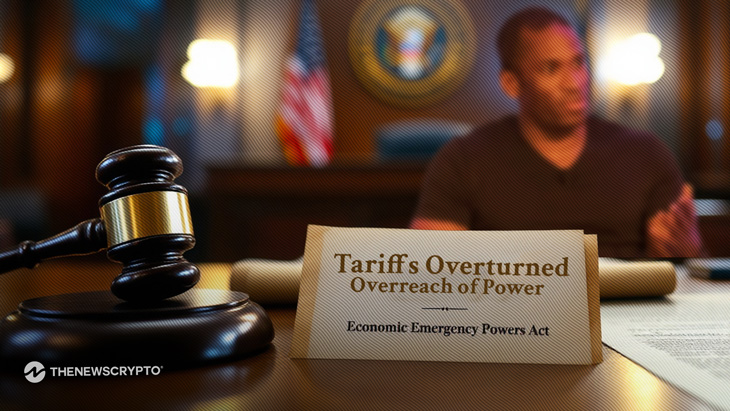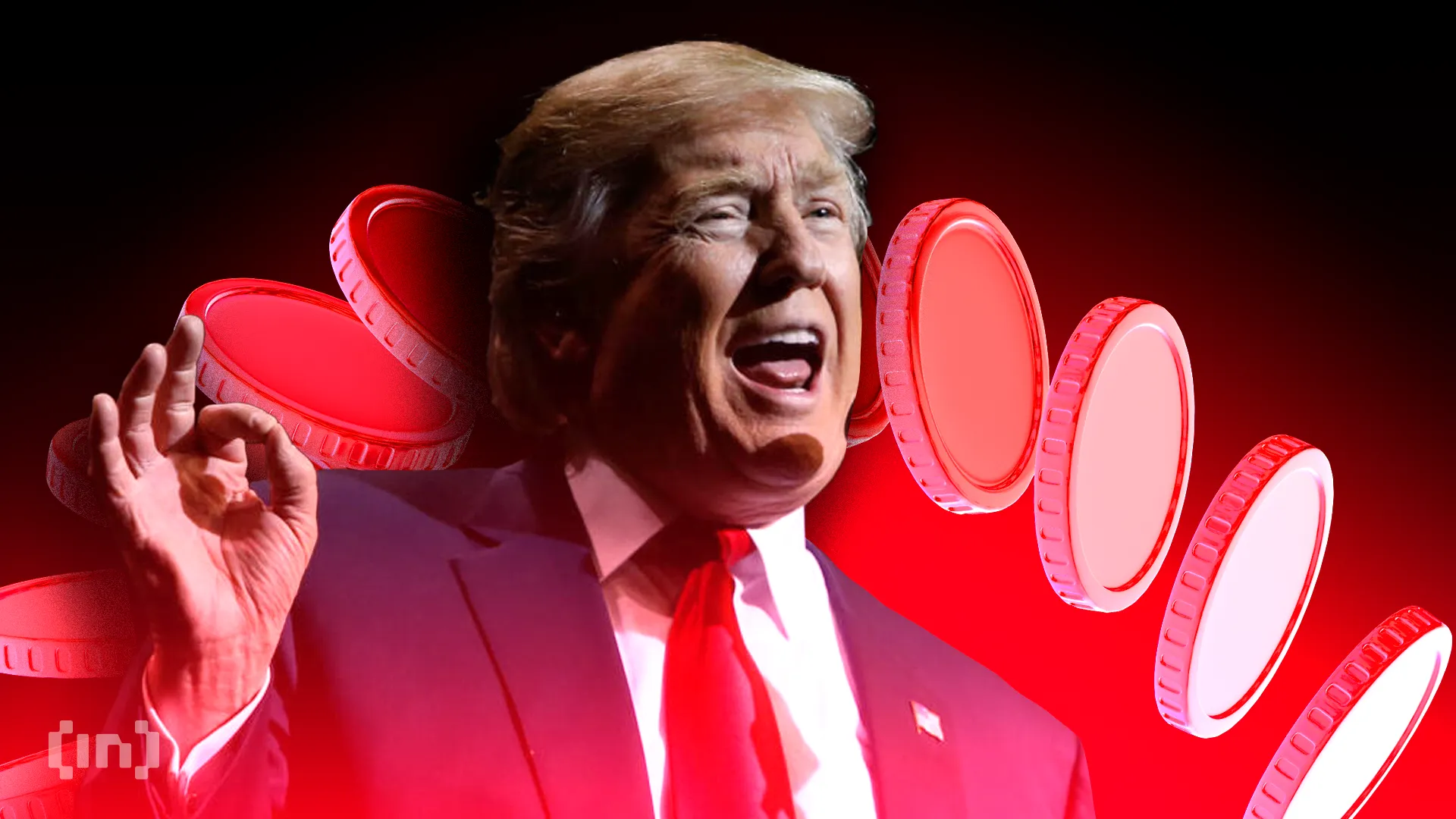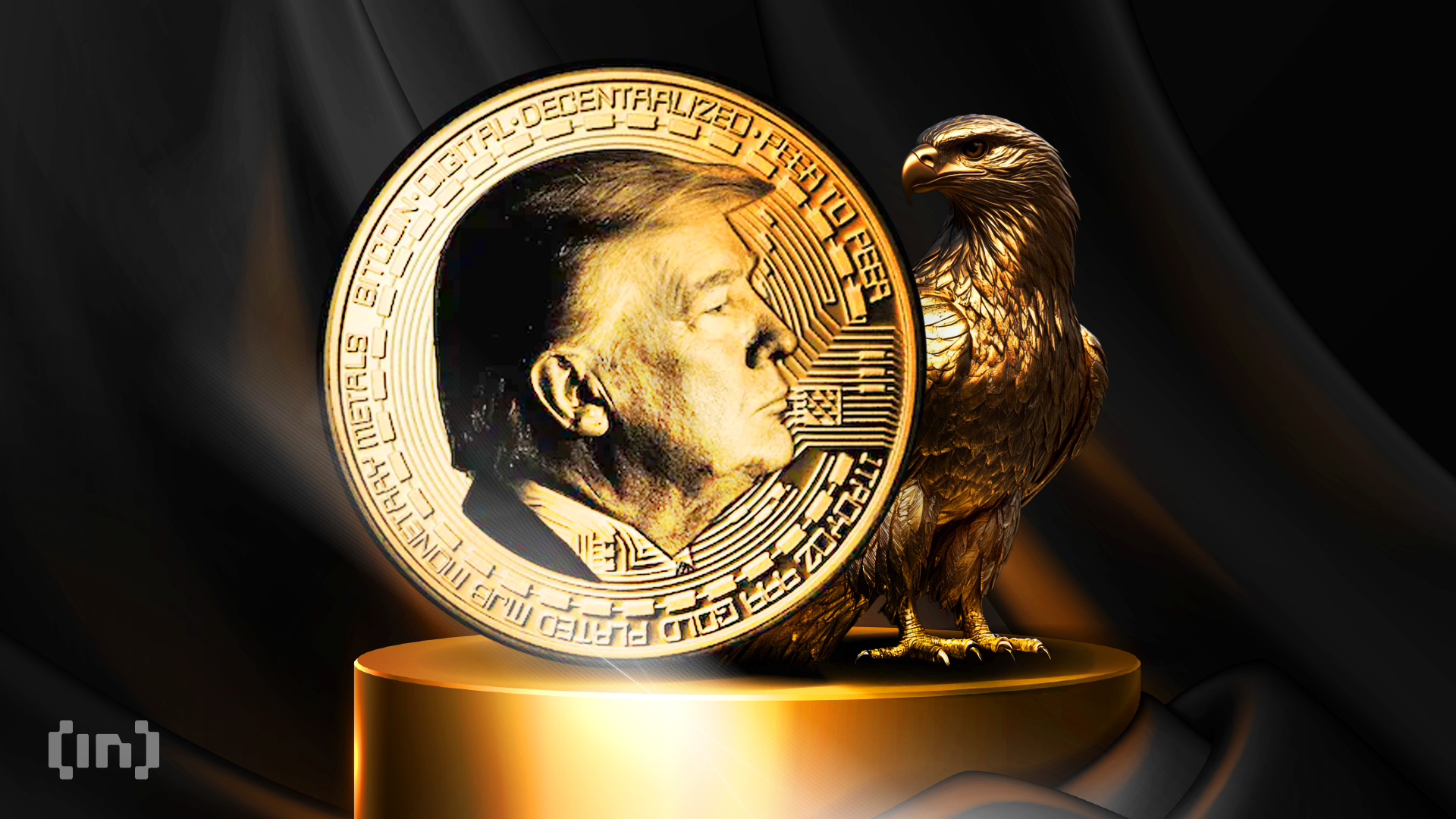U.S. Court Strikes Down Trump’s ‘Liberation Day’ Tariffs in Major Setback

- A U.S. court just scrapped Trump’s “Liberation Day” tariffs, saying he went too far with emergency powers.
- The call sparked quick reactions, small businesses are ready to push back, and Arthur Hayes says it’s a win for crypto and stocks.
- The ruling draws a hard line on what presidents can do with trade and sets the stage for more policy battles as elections get closer.
On May 28, 2025, the U.S. Court of International Trade tossed out former President Trump’s controversial “Liberation Day” tariffs, saying he went way beyond what the law allows under the International Emergency Economic Powers Act (IEEPA). It’s a major blow to Trump’s trade playbook and a clear reminder that even the president can’t just make up the rules when it comes to trade policy.
But all three judges weren’t convinced. They ruled that the economic reasons Trump gave didn’t qualify as a legit national emergency under the law, which made the tariffs straight-up illegal. It’s a big deal legally,this ruling basically puts up a guardrail for future presidents trying to roll out massive trade moves on their own without getting Congress involved.
The fallout hit fast. Importers, especially smaller shops that took the biggest hit are already gearing up to demand refunds and possibly sue for damages. A lot of them had been saying for months that these tariffs jacked up prices, crushed their margins, and wrecked supply chains. Now that the court’s taken their side, there might be more people pushing back on older tariff moves too. However, the Trump administration has already filed an appeal against the decision.
Arthur Hayes sees Opportunity in the Court’s Tariff Takedown
The markets didn’t waste time reacting. Arthur Hayes, BitMEX co-founder and one of crypto’s loudest voices, jumped on his X with a take that was classic Hayes: “Buy everything.” He saw the court’s decision as a green light for the markets, arguing that with trade pressure cooling off, we’re likely heading into easier money and a better setup for risk assets like Bitcoin and stocks.
Hayes has always connected big-picture economic moves to how crypto behaves, and this court decision, he thinks, might give the market a shot of optimism, especially if the government steps in with some kind of stimulus to balance out any trade fallout.
The White House, even though it didn’t fully back Trump’s tariff playbook, has hinted that it might fight the ruling. Some officials are saying it could box in future presidents when it comes to handling global economic shocks. If they do appeal, the legal fight could easily drag on through the next election season.
At the end of the day, the message is pretty straightforward: there’s only so much a president can get away with under the whole “emergency powers” angle. This ruling doesn’t just tear down a big part of Trump’s trade legacy, it also reinforces that the courts still have serious influence when it comes to how U.S. trade policy gets made.
Highlighted Crypto News Today
BlackRock Plans 10% Stake in Circle’s $624M IPO as Acquisition Talks Continue
U.S. Court Strikes Down Trump’s ‘Liberation Day’ Tariffs in Major Setback

- A U.S. court just scrapped Trump’s “Liberation Day” tariffs, saying he went too far with emergency powers.
- The call sparked quick reactions, small businesses are ready to push back, and Arthur Hayes says it’s a win for crypto and stocks.
- The ruling draws a hard line on what presidents can do with trade and sets the stage for more policy battles as elections get closer.
On May 28, 2025, the U.S. Court of International Trade tossed out former President Trump’s controversial “Liberation Day” tariffs, saying he went way beyond what the law allows under the International Emergency Economic Powers Act (IEEPA). It’s a major blow to Trump’s trade playbook and a clear reminder that even the president can’t just make up the rules when it comes to trade policy.
But all three judges weren’t convinced. They ruled that the economic reasons Trump gave didn’t qualify as a legit national emergency under the law, which made the tariffs straight-up illegal. It’s a big deal legally,this ruling basically puts up a guardrail for future presidents trying to roll out massive trade moves on their own without getting Congress involved.
The fallout hit fast. Importers, especially smaller shops that took the biggest hit are already gearing up to demand refunds and possibly sue for damages. A lot of them had been saying for months that these tariffs jacked up prices, crushed their margins, and wrecked supply chains. Now that the court’s taken their side, there might be more people pushing back on older tariff moves too. However, the Trump administration has already filed an appeal against the decision.
Arthur Hayes sees Opportunity in the Court’s Tariff Takedown
The markets didn’t waste time reacting. Arthur Hayes, BitMEX co-founder and one of crypto’s loudest voices, jumped on his X with a take that was classic Hayes: “Buy everything.” He saw the court’s decision as a green light for the markets, arguing that with trade pressure cooling off, we’re likely heading into easier money and a better setup for risk assets like Bitcoin and stocks.
Hayes has always connected big-picture economic moves to how crypto behaves, and this court decision, he thinks, might give the market a shot of optimism, especially if the government steps in with some kind of stimulus to balance out any trade fallout.
The White House, even though it didn’t fully back Trump’s tariff playbook, has hinted that it might fight the ruling. Some officials are saying it could box in future presidents when it comes to handling global economic shocks. If they do appeal, the legal fight could easily drag on through the next election season.
At the end of the day, the message is pretty straightforward: there’s only so much a president can get away with under the whole “emergency powers” angle. This ruling doesn’t just tear down a big part of Trump’s trade legacy, it also reinforces that the courts still have serious influence when it comes to how U.S. trade policy gets made.
Highlighted Crypto News Today
BlackRock Plans 10% Stake in Circle’s $624M IPO as Acquisition Talks Continue

